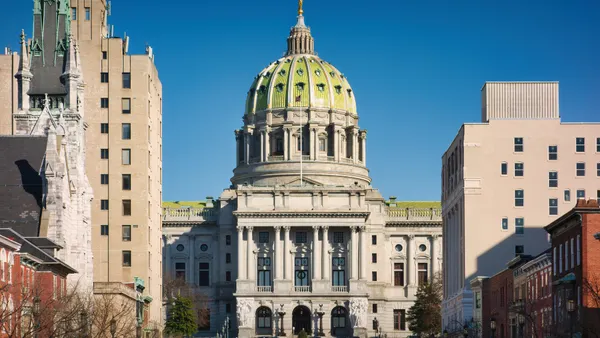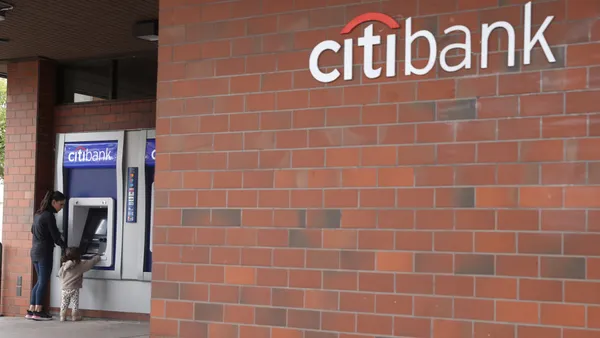Dive Brief:
-
The Office of the Comptroller of the Currency (OCC) urged local governments Monday to consider the adverse impact state-ordered coronavirus lockdowns have on the U.S banking system.
-
"Certain aspects of these orders potentially threaten the stability and orderly functioning of the financial system the OCC is charged by law to protect," Acting Comptroller Brian Brooks wrote in a letter to the leaders of the National League of Cities, the U.S. Conference of Mayors and the National Association of Governors.
-
Brooks, who was the OCC's chief operating officer before replacing former Comptroller Joseph Otting last week, warned prolonged lockdowns could have foist several negative consequences on banks and borrowers, including mass loan delinquencies and a decrease in banking services in low- or moderate-income areas, among others.
Dive Insight:
Brooks, who is only four days into his new role, has wasted little time stepping into the coronavirus lockdown debate.
"Requiring businesses to remain closed decreases businesses' ability to service their debt, thus increasing default risk in the banking system," he said.
All 50 states have eased their lockdown restrictions since the start of the pandemic, and some are beginning to allow nonessential businesses to reopen at various paces. Some health experts have warned hasty reopenings could result in a flare-up of virus cases.
"[W]e now have anecdotal reports of banks that are experiencing small-business loan delinquency rates in the mid-double-digits on loan books that reflected strong cash flow expectations and pristine credit quality at the time of origination, prior to local lockdown orders," Brooks said. "Such high delinquency rates have the potential to threaten the community and midsize banks that are the economic lifeblood of local communities, a factor that your members should take into account in weighing the risks and benefits of lengthy continued lockdown orders."
Brooks also said the "shifting definition" of what constitutes an essential versus a nonessential business is making it difficult for banks and regulators to forecast future delinquencies and losses.
"Such conditions in turn complicate banks' ability to adequately reserve for losses caused by your members' lockdown directives," he said. "Failure to understand, forecast, and reserve for risks based on sound data deprives banks of a key financial risk management tool at a time when their safety and soundness depends on it."
Brooks also addressed mask mandates, saying face mask requirements create a risk that bank robberies will increase.
"Historically, banks had policies prohibiting customers from wearing masks and certain head coverings in branches for this reason," he said. "Many banks relaxed these prohibitions temporarily during the height of the COVID-19 crisis out of concern for the health and welfare of their customers. While that may have been a prudent decision when the extent of the health risk was still unknown, recent reports of face-covering-related robberies at bank branches and other establishments make clear that broadly applicable face mask requirements are not safe or sustainable on a permanent basis."
As some banks prepare to reopen their lobbies to walk-in customers, the proliferation of face masks is causing some CEOs to consider additional steps to maintain security.
Lead Bank CEO Josh Rowland said the Kansas City, Missouri-based community bank is looking into digital tools such as radio frequency identification that would enable the bank to identify and track customers for security and customer-service purposes.
Joe Thomas, CEO of Fairfax, Virginia-based Freedom Bank, said he plans to have customers remove masks for a photo before they enter the branch.
Chris Martin, CEO of New Jersey-based Provident Bank said he plans to have greeters in place to help identify customers as they walk in, but may continue to have customers enter the branch by appointment only if it proves too challenging.
"We may see an upsurge in robberies," he told Banking Dive last week. "I hope that our law enforcement and FBI are paying attention to this, as it’s the new operating paradigm."













